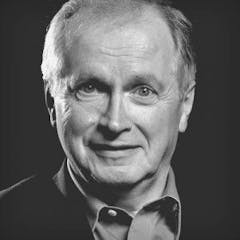Who Will ‘Stand in the Gap’?

I looked for someone among them who would build up the wall and stand before me in the gap on behalf of the land so I would not have to destroy it, but I found no one. (Ezekiel 22:30 NIV)
I do not have a “life verse,” or even a favorite Bible verse. That is not a criticism of those who enjoy such blessings; it may even be a confession that in some domains I have a short attention span. But I would find it easier to list a hundred (or a thousand!) verses that have shaped my life in some significant way than to list one that can claim exclusive influence.
Often these verses have come to me at a well-defined period of my life, and have consequently “spoken” to me with particular clarity and unction. For example, when in recent years I’ve engaged in evangelistic preaching in a hostile context, I’ve often pondered Psalm 36:1 (NIV): “I have a message from God in my heart concerning the sinfulness of the wicked: There is no fear of God before their eyes.”
From my days as a seminary student, I’ve often pondered Revelation 19:6–7 (NIV): “Hallelujah! For our Lord God Almighty reigns. Let us rejoice and be glad and give him glory! For the wedding of the Lamb has come, and his bride has made herself ready.” Doubtless I join millions of other believers in listing Lamentations 3:21–24 (NIV): “Yet this I call to mind and therefore I have hope: Because of the Lord’s great love we are not consumed, for his compassions never fail. They are new every morning; great is your faithfulness. I say to myself, ‘The Lord is my portion; therefore I will wait for him.’”
Yet one verse in particular played a significant role in my calling to vocational ministry.
Will I Wish I Had Given More?
At the time I was studying chemistry at McGill University, and enjoying the work well enough. For a few months I found myself in Ottawa, in a chemistry lab operated by the Canadian federal government, focusing on air pollution. I was thoroughly enjoying my life and labor.
At the same time, I was devoting some of my energy, especially on the weekends, to helping a friend plant a new church a little farther up the Valley. It was not long before I began to wonder if I should be considering vocational ministry. I could not shake off a chorus I learned in Sunday school:
By and by when I look on his face —
Beautiful face, thorn-shadowed face —
By and by when I look at his face,
I’ll wish I had given him more.
Of course, I understood, even then (more than fifty years ago), that some people are called to be chemists, others teachers, workers in waste management, and so forth: for them, the “more” of the chorus includes such vocations. But still, I could not erase that chorus from my mind, and the sense that “more” for me was leading somewhere else.
Standing in the Gap
In September of that year, on a Sunday evening back in my home church in Montréal, I heard a missionary to Haiti, one Richard Wilkinson, give an address on Ezekiel 22:30 (NIV), where God tells the prophet, “I looked for someone among them who would build up the wall and stand before me in the gap on behalf of the land so I would not have to destroy it, but I found no one.”
And my whole being cried out in response, “Here am I! Send me!” (see Isaiah 6:8). The context of Isaiah 6 shows that Isaiah’s volunteering was simultaneously the product of contrition and of presumption; I certainly did not escape the latter.
Nevertheless, that sermon based on Ezekiel 22, where God testifies that he looked for someone to “stand in the gap” before him but found no one, was one of the providential pieces that God used that year to direct me away from chemistry and toward vocational ministry.
How Might the Verse Apply to Me?
I come from a Bible-reading home. We kids were early taught to pay attention to context. As I read God’s words in Ezekiel 22:30, it was clear to me that he was not promising wrath to sinful Canadians in the 1960s, but was threatening wrath on Judea about six centuries before Jesus: that was when no one showed up to “stand in the gap” before God so that he would not have to destroy his covenant people.
“God seeks someone to intercede with him on behalf of his sinful people today.”
To apply it to myself, I implicitly deployed an argument by analogy: just as God sought someone to intercede with him on behalf of his sinful people more than two and a half millennia ago but found no one, so too God seeks someone to intercede with him on behalf of his sinful people today.
Will he again find no one? It is a powerful appeal. I found it so as a young man, and still find it so today.
Standing Through Prayer
Many more years of Bible reading have brought me to think about a number of additional textual details.
Almost two decades later, I heard another preacher expound Ezekiel 22:30 and some related passages. This too occurred during a Sunday evening service, but the location of the church was in Cambridge, England. The preacher was Theo Donner, originally from the Netherlands. After securing a doctorate at Cambridge, he and his Scottish wife went to Medellin, Colombia, as missionaries, where they have served with distinction ever since. The sermon to which I am referring was delivered during one of his periodic sojourns back in Cambridge.
I do not remember all the points he drew from the text, but I recall how he focused our attention on several relevant passages. On the one hand, when the covenant people confess their sin to Samuel — the sin of wanting a king so as to be like the pagan nations around them — Samuel reassures them that “the Lord will not reject his people, because the Lord was pleased to make you his own.” Then Samuel adds, “As for me, far be it from me that I should sin against the Lord by failing to pray for you” (1 Samuel 12:22–23). In other words, intercessory prayer on behalf of the people of God was part of Samuel’s calling.
On the other hand, a different dynamic is disclosed in Amos. When God threatens catastrophic judgment, Amos intercedes with the words, “Sovereign Lord, forgive! How can Jacob survive? He is so small!” The biblical text goes on, “So the Lord relented. ‘This will not happen either,’ the sovereign Lord said” (Amos 7:2 NIV; cf. 7:5–6 NIV). But eventually, God declares, “I will spare them no longer” (Amos 7:8 NIV). The time for intercessory prayer has passed.
Elsewhere, we are told that Samuel is not even to mourn over Saul, once the Lord has rejected him (1 Samuel 16:1). In other words, Ezekiel 22:30 is just one passage that depicts the complex web by which God orders the lives of his people through God-mandated (or even God-forbidden!) prayer. For those drawn to meditate on the mysteries of providence, there is much grist for the mill in Ezekiel 22 and parallel passages.
Standing in the Darkness
Next, the preceding verses of Ezekiel 22:30 show that the sins and failures of the people were widely distributed.
The princes conspire together to “devour people, take treasures and precious things and make many widows within her” (Ezekiel 22:25 NIV); the priests “do violence to my law and profane my holy things” (Ezekiel 22:26 NIV); the officials “are like wolves tearing their prey; they shed blood and kill people to make unjust gain” (Ezekiel 22:27 NIV); the prophets “whitewash these deeds for them by false visions and lying divinations. They say, ‘This is what the Sovereign Lord says’ — when the Lord has not spoken” (Ezekiel 22:28 NIV); and the people “practice extortion and commit robbery; they oppress the poor and needy and mistreat the foreigner, denying them justice” (Ezekiel 22:29 NIV).
“The need to stand in the gap before God is as urgent now as it was six hundred years before Christ.”
That is the context of darkness in which God declares, “I looked for someone among them who would build up the wall and stand before me in the gap on behalf of the land so I would not have to destroy it, but I found no one.”
There are many biblical passages in which God seeks out and appoints prophets, priests, kings, apostles, gospel heralds. In the context of Ezekiel 22, however, God is looking for an intercessor who by God’s own appointment blocks God’s way, as it were (not unlike Moses in Exodus 32–34).
With this verse, set in the context of Ezekiel and in the context of my own life, God challenged me to think more carefully and prayerfully about what he wanted me to do with my life. And the need to stand in the gap before God is as urgent now as it was six hundred years before Christ.




